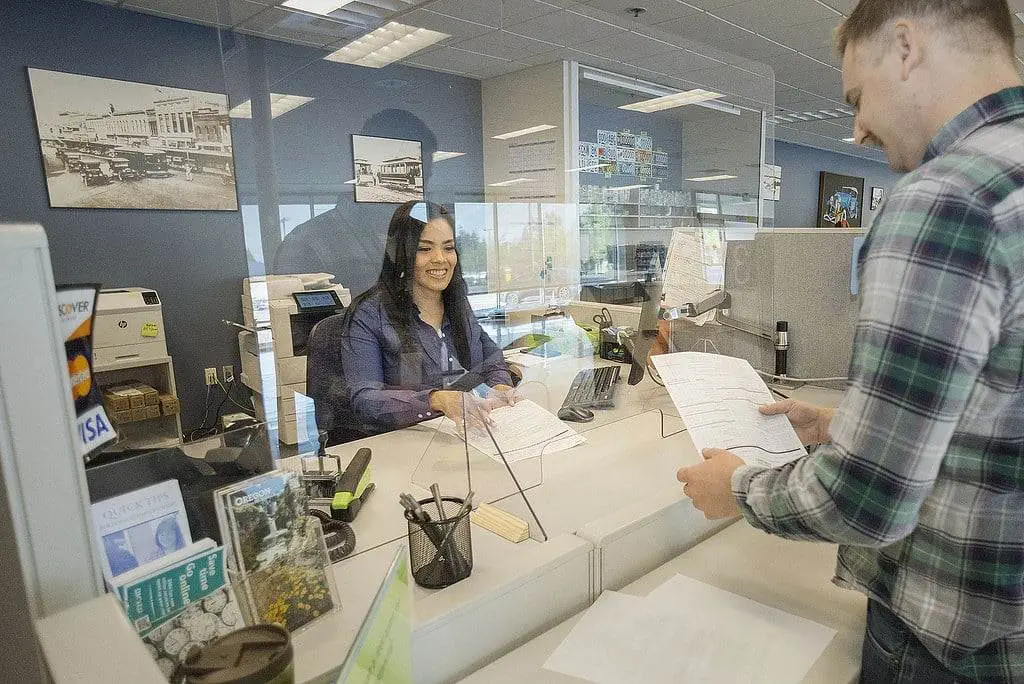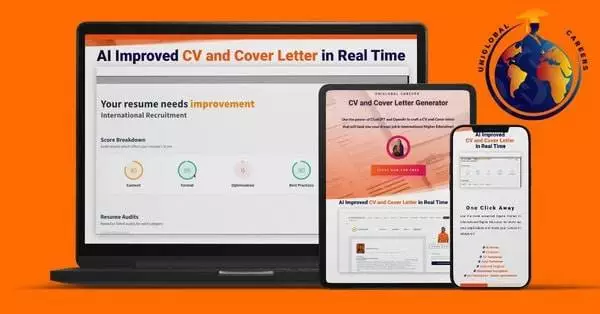Are you a customer service representative who is interested in exploring new career opportunities? Have you considered a job in international education? This rapidly growing field offers the opportunity to work with students from all over the world, providing support and guidance throughout their educational journey. In this article, we’ll explore the skills you need to transition from customer service to international education, the job opportunities available in this field, and strategies for preparing your application materials and interviewing for these jobs.
Understanding the Connection Between Customer Service and International Education
At first glance, it might seem like customer service and international education have little in common. However, both fields require strong communication and problem-solving skills, as well as a commitment to helping others. Customer service representatives are often the first point of contact for customers who have questions or concerns, and they must be able to understand their needs and provide effective solutions. Similarly, professionals in international education must be able to communicate effectively with a diverse group of students, many of whom may be facing language barriers or culture shock.
When it comes to international education, there are many different roles that require strong customer service skills. For example, admissions officers must be able to answer questions from prospective students and their families, providing them with the information they need to make an informed decision about where to study. Similarly, student services staff must be able to provide support to students who may be struggling with academic or personal issues.
Key Skills that Transfer from Customer Service to International Education

As a customer service representative, you have likely developed a variety of skills that are transferable to a job in international education. These might include:
- Strong communication skills: You are able to communicate with customers of all backgrounds and personalities, tailoring your approach as needed.
- Empathy and problem-solving skills: You are able to listen to customers’ concerns and find creative solutions that meet their needs.
- Multitasking abilities: You are able to manage multiple tasks and priorities simultaneously, remaining organized and focused under pressure.
- Adaptability and flexibility: You are able to adjust to changing circumstances and remain calm in the face of unexpected challenges or obstacles.
These skills are highly valued in international education, where professionals must be able to work with students from a wide range of backgrounds and cultures. For example, an international student advisor may need to communicate with students from countries with vastly different cultural norms and expectations. By drawing on your customer service experience, you can develop strategies for building rapport and establishing trust with these students.
The Importance of Cultural Sensitivity and Adaptability
One of the most important skills for anyone working in international education is cultural sensitivity and adaptability. Students from different parts of the world will have unique backgrounds, values, and ways of communicating, and it is important to understand and respect these differences. As someone with experience in customer service, you may have already developed these skills by working with customers from different backgrounds.
However, it is important to recognize that cultural sensitivity goes beyond simply being polite or respectful. It requires a deep understanding of different cultures and the ability to adapt your communication style and behavior accordingly. For example, in some cultures, direct eye contact may be seen as a sign of disrespect, while in others, it is expected. By developing your cultural sensitivity and adaptability, you can build stronger relationships with international students and help them succeed in their academic and personal goals.
Identifying Your Strengths and Areas for Growth
Before embarking on a career in international education, it is important to take stock of your current skill set and identify areas where you may need to develop new skills or gain additional experience. This will not only help you become a more competitive candidate but also equip you with the necessary tools to succeed in your new role.

Assessing Your Current Skill Set
As a customer service representative, you have likely developed a range of skills that can be transferable to the field of international education. For instance, your ability to communicate effectively, resolve conflicts, and multitask are all valuable skills that can be leveraged in your new role. Take some time to reflect on your experience and identify areas where you excel and where you need to improve.
Developing New Skills for International Education
Depending on your background and experience, you may need to develop new skills to succeed in international education. One critical area to consider is language skills. If you plan to work with students from a particular country or region, it may be helpful to learn their language or improve your language skills. This can help you connect with your students on a deeper level and better understand their needs and concerns.
Another important area to focus on is cross-cultural communication. Taking a course or workshop on cross-cultural communication can help you develop the skills you need to work effectively with students from diverse backgrounds. This can include learning about different cultural norms, customs, and expectations, as well as developing strategies for building trust and rapport with your students.

Finally, it is essential to stay up-to-date with the latest trends and best practices in international education. This means reading industry publications, attending conferences and workshops, and networking with other professionals in the field. By staying informed and connected, you can ensure that you are equipped with the knowledge and skills needed to succeed in your role.
Leveraging Your Customer Service Experience
When applying for jobs in international education, it is important to highlight your customer service experience. This can include specific examples of situations where you demonstrated strong communication, problem-solving, or multitasking skills. For instance, you may have successfully resolved a complex customer issue, managed a high volume of customer inquiries, or collaborated with a team to improve customer satisfaction. By emphasizing these skills and experiences, you can demonstrate to potential employers that you have what it takes to excel in your new role.
Overall, identifying your strengths and areas for growth is an essential first step in pursuing a career in international education. By taking the time to assess your skills, develop new ones, and leverage your existing experience, you can position yourself as a competitive candidate and succeed in this exciting and rewarding field.
Exploring Job Opportunities in International Education
International education is an exciting and growing field that offers a wide range of job opportunities for individuals who are passionate about helping students succeed in a global environment. Whether you are interested in working with international students, helping students study abroad, or assisting with the college admissions process, there are a variety of jobs available in this field.
Types of International Education Jobs
International education encompasses a broad range of jobs, from admissions counselors to study abroad coordinators. Some common job titles in this field include:
- International Student Advisor: Works with international students to ensure they have the support and resources they need to succeed. This may include helping students with visa applications, providing academic and personal advising, and connecting students with campus resources and support services.
- Study Abroad Coordinator: Helps students plan and prepare for study abroad experiences, connecting them with programs and resources both on and off campus. Study abroad coordinators may also work with faculty to develop study abroad programs and partnerships with international institutions.
- Admissions Counselor: Assists international students with the college admissions process, from application to enrollment. Admissions counselors may also travel internationally to recruit students and build relationships with high schools and educational organizations in other countries.
- International Program Manager: Oversees and manages international programs and initiatives at colleges and universities. This may include managing study abroad programs, developing partnerships with international institutions, and coordinating international student services and support.
- ESL Instructor: Teaches English as a second language to international students. ESL instructors may work at colleges and universities, language schools, or in other educational settings.
- International Education Consultant: Provides consulting services to colleges, universities, and other educational organizations on international education issues. This may include advising on international student recruitment, developing study abroad programs, and providing training and support for faculty and staff on working with international students.
Networking and Building Connections in the Industry
One of the best ways to learn about job opportunities in international education is to network with professionals in the field. Attend conferences, join professional organizations, and connect with alumni from your college or university to learn about potential job openings and gain valuable insights into the industry. Networking can also help you build relationships with potential employers and colleagues, which can be invaluable as you progress in your career.
Job Search Strategies and Resources
When you are ready to start your job search, start by researching potential employers and job openings online. Some helpful resources include:
- The Chronicle of Higher Education: This website features job postings in the education industry, including many opportunities in international education. You can search for jobs by location, job type, and other criteria.
- Association of International Educators (NAFSA): This professional organization offers job postings, as well as conferences and networking events for professionals in international education. NAFSA also provides resources and training for professionals in the field.
- The Fulbright Program: This prestigious program offers a variety of international education opportunities, including teaching assistantships and research grants. The Fulbright Program is a great way to gain international experience and build your skills and credentials in the field.
- LinkedIn: This professional networking site can be a great way to connect with other professionals in international education and learn about job opportunities. You can search for jobs, join groups related to international education, and connect with other professionals in the field.
- Indeed: This job search website features job postings from a wide range of employers, including many in international education. You can search for jobs by location, job type, and other criteria, and set up job alerts to receive notifications when new jobs are posted.
By building your skills, networking with professionals in the field, and staying up-to-date on job opportunities and resources, you can build a successful career in international education.
Preparing for the Job Application Process
Applying for jobs in international education can be a daunting task, but with the right preparation, you can increase your chances of success. To start, it is important to research the industry and understand the specific skills and qualifications that are required for the job you are applying for.
Tailoring Your Resume and Cover Letter
One of the most important steps in the job application process is tailoring your resume and cover letter to the specific job and employer. This means highlighting your relevant experience and skills and explaining how they make you an ideal candidate for the position. It also means researching the company and understanding their values and mission, so you can demonstrate how you align with those values.

When tailoring your resume and cover letter, be sure to use keywords and phrases from the job description, as many companies use applicant tracking systems to screen resumes. By using the same language as the job posting, you can increase your chances of making it past the initial screening.
Preparing for Interviews in International Education
If you are invited for an interview, congratulations! This is a great opportunity to showcase your skills and experience and learn more about the company and the position. To prepare for the interview, take some time to research the employer and the position. Look at the company’s website, social media profiles, and any news articles or press releases about the company.
Think about how your skills and experience align with the job requirements, and be prepared to give specific examples of how you have demonstrated those skills in the past. It is also important to prepare questions to ask the interviewer, as this shows that you are interested and engaged in the position.
Showcasing Your Customer Service Experience
Customer service is an essential skill in international education, as many roles involve working with students, parents, and colleagues from diverse backgrounds. Throughout the job application and interview process, be sure to highlight your customer service experience and how it has prepared you for a career in international education.
Explain how your experience has taught you to be patient, empathetic, and proactive in helping others, and how you will bring those skills to your new role. Give specific examples of how you have gone above and beyond to assist a customer or resolve a difficult situation.
By following these tips and preparing thoroughly for each step of the job application process, you can increase your chances of landing your dream job in international education.
Conclusion
Transitioning from customer service to international education is a great way to use your skills and experience in a new and fulfilling career. By assessing your current skill set, developing new skills and knowledge, and emphasizing your customer service experience, you can position yourself as a strong candidate for exciting opportunities in international education.


